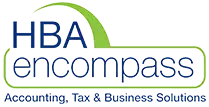I’m selling my business: Should I sell the shares? Or should I sell the business in my company? Just so you know, I’m talking specifically about companies here, you can’t sell shares in discretionary trusts, you can sell units in unit trusts, you also can’t sell shares in partnerships. Those are a discussion for another day.
So, let’s talk about companies. If you sell the shares in in company which owns a business or assets related to a business, you’re selling an active asset. Whoever owns those shares gets all the normal capital gains small business exemptions if they qualify as a small business. This also means that if you have owned the shares for 12 months, you also get a 50% reduction in the capital gain. We have discussed this previously in a separate blog.
If you sell the business out of a company rather than the shares, companies don’t get the 12-month exemption. You still get the small business exemptions, however, what happens is that the untaxed income remains in the company. To get these untaxed funds out of the company there are two options:
- You have to pay an unfranked dividend. This means that you as a shareholder pay tax on that money anyway, which is not usually the best idea.
- Liquidate the company – in some instances when they liquidate the company, funds returned to the shareholder is a return on capital rather than a dividend. This can mean that if it’s in a close enough timeframe to the capital gain, you may be able to trigger the small business capital gains exemptions on that and have some great outcomes.
Always come and see us to have a chat about the options and the tax implications of selling your business.
Keep in mind that most people will want to buy the business and not buy your company. The reason for that is simple – It’s skeletons in the closet. They don’t want to risk anything that you may have done in that business in the past, coming back to get them that they’re going to have liability for. If I’m advising clients to buy a business, I always say buy the business, not the company. Large companies aren’t quite as averse to that risk. This means that often, they’re quite happy in some instances to buy the shares rather than the companies. If you can sell the shares rather than the company, great, but do come and see us because there can be some seriously awesome tax consequences if the right actions are taken.


